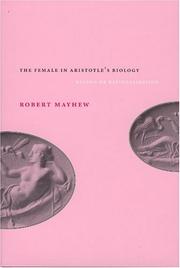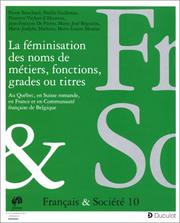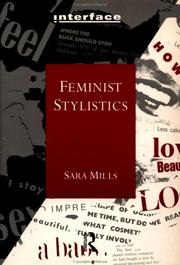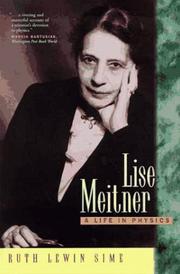| Listing 1 - 10 of 12 | << page >> |
Sort by
|
Book
ISBN: 3839444349 9783839444344 9783837644340 Year: 2018 Publisher: Bielefeld transcript Verlag
Abstract | Keywords | Export | Availability | Bookmark
 Loading...
Loading...Choose an application
- Reference Manager
- EndNote
- RefWorks (Direct export to RefWorks)
What exactly is rape? And how is it embedded in society? Hilkje Charlotte Hänel offers a philosophical exploration of the often misrepresented concept of rape in everyday life, systematically mapping out and elucidating this atrocious phenomenon. Hänel proposes a theory of rape as a social practice facilitated by ubiquitous sexist ideologies. Arguing for a normative cluster model for the concept of rape, this timely intervention improves our understanding of lived experiences of sexual violence and social relations within sexist ideologies.
Rape --- Assault, Criminal (Rape) --- Assault, Sexual --- Criminal assault (Rape) --- Nonconsensual sexual intercourse --- Sexual assault --- Offenses against the person --- Sex crimes --- Rape; Feminist Philosophy; Social Structures; Sexist Ideology; Sexual Violence; Violence; Gender; Social Philosophy; Gender Studies; Analytical Philosophy; Philosophy --- Analytical Philosophy. --- Feminist Philosophy. --- Gender Studies. --- Gender. --- Philosophy. --- Sexist Ideology. --- Sexual Violence. --- Social Philosophy. --- Social Structures. --- Violence.
Book
ISBN: 9780521807111 9780521001748 9780511755033 0511429339 9780511429330 9780511429712 0511429711 0521001749 0521807115 1107194938 1281791245 9786611791247 0511428146 0511427530 0511755031 0511428855 9781107194939 9781281791245 6611791248 9780511428142 9780511427534 9780511428852 Year: 2008 Publisher: Cambridge Cambridge University Press
Abstract | Keywords | Export | Availability | Bookmark
 Loading...
Loading...Choose an application
- Reference Manager
- EndNote
- RefWorks (Direct export to RefWorks)
The issue of sexist language has been hotly debated within feminist circles since the 1960s. Previous books have tended to regard sexism in language as easy to identify and have suggested solutions to overcome and counter sexism. Sara Mills takes a fresh and more critical look at sexism in language, and argues that even in feminist circles it has become a problematic concept. Drawing on conversational and textual data collected over the last ten years, and with reference to recent research carried out in a range of different academic disciplines, Mills suggests that there are two forms of sexism - overt and indirect. Overt sexism is clear and unambiguous, while indirect sexism is based on pragmatics and the meaning and interpretation of utterances. Indirect sexism is extremely common and we therefore need new ways to challenge and analyse its usage in language.
Sociology of the family. Sociology of sexuality --- Sociolinguistics --- Sexism in language. --- Language and languages --- Language and sex --- Sexism in language --- Sexist language --- Nonsexist language --- Sex differences. --- Sex differences --- Arts and Humanities --- Language & Linguistics
Book
ISBN: 311048210X 3110272911 9786613626813 1280596988 Year: 2012 Publisher: Berlin : De Gruyter,
Abstract | Keywords | Export | Availability | Bookmark
 Loading...
Loading...Choose an application
- Reference Manager
- EndNote
- RefWorks (Direct export to RefWorks)
In diesem Sammelband zur Genderlinguistik werden Praktiken der sprachlichen Konstruktion von Geschlechteridentitäten aus diversen Blickwinkeln aufgezeigt. Die Beiträge, die unterschiedliche methodische und theoretische Zugänge zur Untersuchung des Zusammenhangs von Sprache und Geschlecht präsentieren, diskutieren aktuelle Fragestellungen und skizzieren neue Perspektiven zur sprachlichen Konstruktion von Geschlecht. So werden Genderinszenierungen in medialen Zusammenhängen wie auch in Face-to-Face Interaktionen aufgezeigt, Aspekte des Zusammenspiels von Sprachsystem und Sprachgebrauch diskutiert und Fragen nach aktuellen Tendenzen einer "geschlechtergerechten Sprache" aufgeworfen.
Language and sex. --- Sexism in language. --- Nonsexist language. --- Inclusive language --- Nonsexist writing --- Bias-free language --- Sexism in language --- Sexist language --- Language and sex --- Language and languages --- Nonsexist language --- Sex and language --- Sex --- Sex differences --- Nonsexist usage --- Pragmatics (linguistics). --- deconstruction. --- gender studies. --- gender. --- linguistic sociology.

ISBN: 1282932845 9786612932847 0226512029 9780226512020 9781282932845 6612932848 0226512002 9780226512006 Year: 2004 Publisher: Chicago : University of Chicago Press,
Abstract | Keywords | Export | Availability | Bookmark
 Loading...
Loading...Choose an application
- Reference Manager
- EndNote
- RefWorks (Direct export to RefWorks)
While Aristotle's writings on biology are considered to be among his best, the comments he makes about females in these works are widely regarded as the nadir of his philosophical oeuvre. Among many claims, Aristotle is said to have declared that females contribute nothing substantial to generation; that they have fewer teeth than males; that they are less spirited than males; and that woman are analogous to eunuchs. In The Female in Aristotle's Biology, Robert Mayhew aims not to defend Aristotle's ideas about females but to defend Aristotle against the common charge that his writings on female species were motivated by ideological bias. Mayhew points out that the tools of modern science and scientific experimentation were not available to the Greeks during Aristotle's time and that, consequently, Aristotle had relied not only on empirical observations when writing about living organisms but also on a fair amount of speculation. Further, he argues that Aristotle's remarks about females in his biological writings did not tend to promote the inferior status of ancient Greek women. Written with passion and precision, The Female in Aristotle's Biology will be of enormous value to students of philosophy, the history of science, and classical literature.
Misogyny. --- Women. --- Aristotle. --- feminine, woman, women, aristotle, philosophy, philosopher, ancient, well known, influential, biological, rational, oeuvre, lifes work, claims, arguments, generation, reproduction, physical, physiology, spirit, personality, behavior, eunuch, defense, species, ideology, bias, sexism, sexist, modern, contemporary, science, scientific, greek, greece, empirical, observation, data, speculation, entomology, embryology. --- Biology --- Female. --- Philosophy. --- history.
Book
ISBN: 9025420737 Year: 1997 Publisher: Amsterdam Contact
Abstract | Keywords | Export | Availability | Bookmark
 Loading...
Loading...Choose an application
- Reference Manager
- EndNote
- RefWorks (Direct export to RefWorks)
Uitgesproken taalseksismen hebben tegenwoordig plaats gemaakt voor eerder onderhuids seksisme. Bijna onopgemerkt blijken allerlei soorten teksten nog steeds kwalijke gedachten over de plaats en de waarde van vrouwen mee te kunnen dragen. Wat we denken, komt in ons taalgebruik terecht en de teksten die daar het resultaat van zijn, beïnvloeden weer wat we denken. Aan de hand van talloze, recente voorbeelden maakt Verbiest pijnlijk duidelijk hoezeer ons taalgebruik nog stoelt op gedachten die discriminerend zijn voor vrouwen. Voor de taalgebruikers die een dergelijke lading niet aan hun eigen teksten willen meegeven, worden zeven valkuilen besproken en eventuele remedies aangereikt.
Dutch language --- Pragmatics --- 803.93-086 --- #KVHA:Sociolinguistiek; Nederlands --- #KVHA:Taalseksisme; Nederlands --- Nederlands: slang; jeugdtaal; vaktaal --- Nederlandse taal --- Taal en sekse --- taalgebruik --- seksismen --- Taal en sekse. --- seksismen. --- 803.93-086 Nederlands: slang; jeugdtaal; vaktaal --- Feminist theory --- Sexism in language --- Sexist language --- Language and sex --- Language and languages --- Nonsexist language --- Feminism --- Feminist philosophy --- Feminist sociology --- Theory of feminism --- Sex differences --- Philosophy --- SOCIOLINGUISTIEK --- NEERLANDAIS (LANGUE) --- TAALATTITUDE --- SEKSVERSCHILLEN --- TAALGEBRUIK --- DIFFERENCES ENTRE SEXES --- Stereotypes --- Language use --- Linguistic sexism --- Images of women --- Professions --- Book
Book
ISBN: 0190902744 0190902728 0190902736 Year: 2020 Publisher: New York, New York : Oxford University Press,
Abstract | Keywords | Export | Availability | Bookmark
 Loading...
Loading...Choose an application
- Reference Manager
- EndNote
- RefWorks (Direct export to RefWorks)
This text engages with the Earth Mother, a complex figure recognizing the power to give life and death, and speaking to the communal destiny with all living things. Specifically, Jane Caputi rejects misogynist and colonialist stereotypes, and examines the potency of the Earth Mother in order to deepen awareness of how our relationship to the Earth went astray and what might be done to address this. She looks at contemporary narratives and artwork to consider the ways in which that potency has already reasserted itself into our political and popular culture.
Environmentalism --- Environmental sciences --- Sexism in language. --- Ecofeminism. --- Patriarchy. --- Nature --- Social aspects. --- Philosophy. --- Language. --- Effect of human beings on. --- Anthropogenic effects on nature --- Ecological footprint --- Human beings --- Anthropogenic soils --- Human ecology --- Androcracy --- Patriarchal families --- Fathers --- Families --- Male domination (Social structure) --- Patrilineal kinship --- Eco-feminism --- Ecological feminism --- Feminist ecology --- Green feminism --- Feminism --- Women and the environment --- Sexist language --- Language and sex --- Language and languages --- Nonsexist language --- Environmental science --- Science --- Sex differences
Book
ISBN: 9788491922933 9783968693361 9783968693378 396869337X Year: 2022 Publisher: Madrid : Frankfurt : Iberoamericana ; Vervuert,
Abstract | Keywords | Export | Availability | Bookmark
 Loading...
Loading...Choose an application
- Reference Manager
- EndNote
- RefWorks (Direct export to RefWorks)
Este estudio ofrece una perspectiva general sobre la comunicación no sexista, pero no se agota únicamente en este objetivo. Plantea primero la posibilidad de aparición de sesgos ideológicos en cualquier disciplina científica, Lingüística incluida, y, desde este punto de partida, sirviéndose de la noción de mito lingüístico, analiza algunos fenómenos centrales en la polémica sobre el lenguaje no sexista que constituyen el núcleo teórico de la obra: el masculino como término no marcado, el principio de arbitrariedad del lenguaje, el principio de economía lingüística y el carácter genérico del masculino. A continuación, sigue revisando otras mitologías relacionadas con este debate que se internan principalmente en el terreno del análisis del discurso, como los topoi inmanentistas o la caracterización ideológica de este asunto desde la política y la planificación lingüísticas. Este trabajo maneja bases teóricas y metodológicas muy diversas que ayudan a realizar un análisis profundo y a la vez poliédrico de la cuestión tratada y, sin perder el rigor académico, busca un tono ensayístico que facilite la comprensión de los conceptos y permita ir más allá del público especializado en lingüística.
Nonsexist language --- Sexism in language --- Sociolinguistics --- LANGUAGE ARTS & DISCIPLINES / Linguistics / General. --- Language and culture --- Linguistics --- Sociology --- Integrational linguistics (Oxford school) --- Sexist language --- Language and sex --- Language and languages --- Nonsexist usage --- Nonsexist writing --- Bias-free language --- Sex differences --- Spain. --- Espagne --- Espainiako Erresuma --- España --- Espanha --- Espanja --- Espanya --- Estado Español --- Hispania --- Hiszpania --- Isupania --- Kingdom of Spain --- Regne d'Espanya --- Reiaume d'Espanha --- Reino de España --- Reino d'Espanya --- Reinu d'España --- Sefarad --- Sepharad --- Shpanie --- Shpanye --- Spanien --- Spanish State --- Supein

ISBN: 2801112305 9782801112304 Year: 1999 Volume: 10 Publisher: Louvain-la-Neuve Duculot
Abstract | Keywords | Export | Availability | Bookmark
 Loading...
Loading...Choose an application
- Reference Manager
- EndNote
- RefWorks (Direct export to RefWorks)
Lexicology. Semantics --- French language --- Quebec --- Roman Switzerland --- Belgium --- Beroepen --- Professions --- Socio-linguistique --- Sociolinguïstiek --- Frans --- Français (langue) --- Seksisme in de taal --- Sexism in language --- Sexisme dans le langage --- Vocabulaire --- Woordenschat --- Occupations --- Français (Langue) --- Féminisation des titres --- Gender --- Terminology --- Genre --- -Occupations --- -Sexism in language --- #KVHA:Lexicografie; Frans --- taalgebruik --- woordenschat --- fran 844 --- Sexist language --- Language and sex --- Language and languages --- Nonsexist language --- Career patterns --- Careers --- Jobs --- Trades --- Handicraft --- Vocational guidance --- Work --- Langue d'oïl --- Romance languages --- Frans - idioom, woordenschatverrijking --- Sex differences --- Sexism in language. --- Gender. --- Terminology. --- Français (Langue) --- Féminisation des titres --- Europe francophone --- Usage (linguistic) --- Linguistic change --- Quebec [Province] --- French language - Gender --- Occupations - Terminology

ISBN: 0415050286 9780415050289 Year: 1995 Volume: *7 Publisher: London New York : Routledge,
Abstract | Keywords | Export | Availability | Bookmark
 Loading...
Loading...Choose an application
- Reference Manager
- EndNote
- RefWorks (Direct export to RefWorks)
In this timely, provocative and lively book, Sara Mills opens up the study of style to feminist inquiry. Combining insights from literary and linguistic theory, she provides a rationale for the interrogation of texts from a feminist perspective. Through an examination of both literary and non -literary texts; newspapers, pop songs and advertisements, she examines such issues as sexism, political correctness, reader positioning, agency,and meaning. Feminist Stylistics presumes no prior knowledge of either feminist or stylistic theory. Each chapter includes a short expositiory section which shows how the issue has been discussed by literary and linguistic theorists, and then goes on to provide a feminist theoretical framework or critique. It also includes an extensive bibliography and provides readers with a `tool-kit' with which to expose the gender bias of both `classic' and `popular' texts.
Critique littéraire féministe --- Feminist literary criticism --- Feministische literatuurkritiek --- Literaire stijl --- Literary style --- Seksisme in de taal --- Sexism in language --- Sexisme dans le langage --- Stijl [Literaire ] --- Style [Literary ] --- Style littéraire --- Language and languages --- Sexism in language. --- Feminist literary criticism. --- Women --- Style, Literary. --- Sex differences. --- Language. --- Style. --- Feminisme --- Taal en sekse --- Vrouwen --- taalgebruik --- Taal en sekse. --- taalgebruik. --- Style, Literary --- Literature --- Rhetoric --- Sexist language --- Language and sex --- Nonsexist language --- Linguostylistics --- Stylistics --- Literary criticism, Feminist --- Feminism and literature --- Feminist criticism --- Sex differences --- Style --- Language --- Taalgebruik. --- Language and languages - Sex differences. --- Women - Language. --- Language and languages - Style. --- Langage et langues --- Critique féministe --- Stylistique --- Différences entre sexes --- Langage

ISBN: 0585055246 0520918991 9786613622723 1280592893 9780520918993 9780585055244 0520089065 0520208609 9780520089068 Year: 1996 Volume: 13 Publisher: Berkeley University of California Press
Abstract | Keywords | Export | Availability | Bookmark
 Loading...
Loading...Choose an application
- Reference Manager
- EndNote
- RefWorks (Direct export to RefWorks)
Lise Meitner (1878-1968) was a pioneer of nuclear physics and co-discoverer, with Otto Hahn and Fritz Strassmann, of nuclear fission. Braving the sexism of the scientific world, she joined the prestigious Kaiser Wilhelm Institute for Chemistry and became a prominent member of the international physics community. Of Jewish origin, Meitner fled Nazi Germany for Stockholm in 1938 and later moved to Cambridge, England. Her career was shattered when she fled Germany, and her scientific reputation was damaged when Hahn took full credit-and the 1944 Nobel Prize-for the work they had done together on nuclear fission. Ruth Sime's absorbing book is the definitive biography of Lise Meitner, the story of a brilliant woman whose extraordinary life illustrates not only the dramatic scientific progress but also the injustice and destruction that have marked the twentieth century.
Women physicists --- Physicists --- Women in physics --- Women physical scientists --- Meitner, Lise, --- Meitner, Lise --- Austria --- Biography --- Meitner, Lise, - 1878-1968. --- Women physicists - Austria - Biography. --- Physics --- Nuclear physics --- Physiciennes --- Physique --- Physique nucléaire --- History --- History. --- Research. --- Histoire --- Recherche --- 20th century. --- biographical. --- career. --- chemistry. --- concentration camp. --- female scientist. --- feminism. --- feminist. --- injustice. --- intellectual property. --- jewish heritage. --- jewish women. --- judaism. --- nazi germany. --- nobel prize. --- nuclear fission. --- nuclear physics. --- refugee. --- role model. --- scientific. --- sexism. --- sexist. --- strong women. --- true story. --- women in history. --- women in stem. --- women in the workforce. --- world history. --- Physique nucléaire --- Research
| Listing 1 - 10 of 12 | << page >> |
Sort by
|

 Search
Search Feedback
Feedback About UniCat
About UniCat  Help
Help News
News